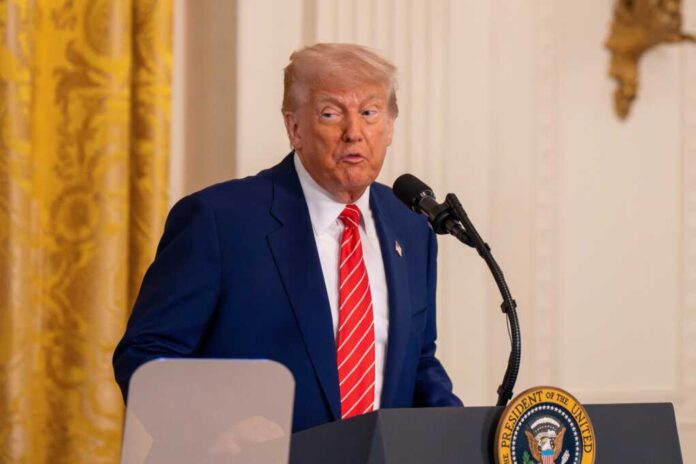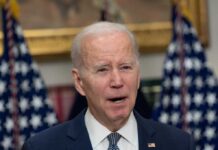
Trump’s latest nuclear proposal offers phased sanctions relief to Iran even as Tehran continues enriching uranium just steps from weapons-grade levels.
At a Glance
- Iran has over 400kg of 60% enriched uranium, nearing weapons-grade capacity
- Trump administration sent a formal proposal via Oman offering phased sanctions relief
- Iran refuses to stop enrichment and demands full sanctions lifted before compliance
- U.S. paused new sanctions to incentivize negotiations despite IAEA access concerns
- The plan marks a sharp shift from Trump’s earlier “maximum pressure” doctrine
Strategic Reset or Dangerous Concession?
The Trump administration has quietly revived negotiations with Iran, offering a sweeping new nuclear proposal delivered via Omani intermediaries in April. The deal includes phased sanctions relief in return for limits on Iran’s uranium enrichment program—despite Tehran’s ongoing production of 60% enriched uranium, just below weapons-grade.
Watch a report: Trump Pushes Iran to Accept Deal, Enrichment Continues.
Iran currently possesses more than 400 kilograms of 60% enriched uranium, according to a leaked IAEA report. Experts warn that enrichment beyond 90% would make the material weapons-ready—a threshold Iran could theoretically reach within weeks.
While Special Envoy Steve Witkoff insists the plan demands “verifiable rollback” of Iran’s nuclear infrastructure, critics argue that offering relief before full compliance repeats the strategic flaws of past accords. Iranian Foreign Minister Abbas Araghchi confirmed receipt of the proposal but emphasized Iran’s red lines, calling for “guaranteed, unconditional lifting of all sanctions.”
Mixed Signals from Tehran
Iran’s reaction has been publicly defiant. State media described the offer as “completely one-sided,” and senior officials suggested enrichment will continue regardless of diplomatic progress. This aligns with Iran’s refusal to grant full IAEA access, a core sticking point.
In a statement echoing previous confrontations, Araghchi claimed the U.S. must first “prove its credibility,” citing Trump’s 2018 withdrawal from the JCPOA as a breach of trust. Meanwhile, the Trump White House has paused new sanctions to keep negotiations alive—drawing criticism from hawks who supported the former “maximum pressure” campaign.
“We aren’t offering blank checks,” Witkoff said in a Times of Israel briefing. “But Iran must know we’re serious about stopping proliferation through diplomacy, not just pressure.”
Political Risk and Strategic Dilemma
Trump’s pivot reflects a stark calculus: reining in Iran’s nuclear program may require compromise, even at political cost. While the administration frames the proposal as a tougher, verification-heavy alternative to the Obama-era JCPOA, critics see signs of strategic drift.
Under the original Trump doctrine, sanctions devastated Iran’s economy and limited its regional influence. Today, that pressure is being dialed back in hopes of a breakthrough, even as Iran boosts uranium output and threatens European powers over potential snapback sanctions.
With talks ongoing in Oman, both allies and adversaries are watching closely. Israel has expressed alarm over the possible easing of restrictions, while Gulf states seek reassurances that a revived deal won’t empower Iran’s proxies.
Whether this gamble results in a breakthrough or another failed bet remains to be seen. But one thing is clear: the new Trump proposal is a high-stakes test of whether diplomacy can work where pressure once prevailed.





























